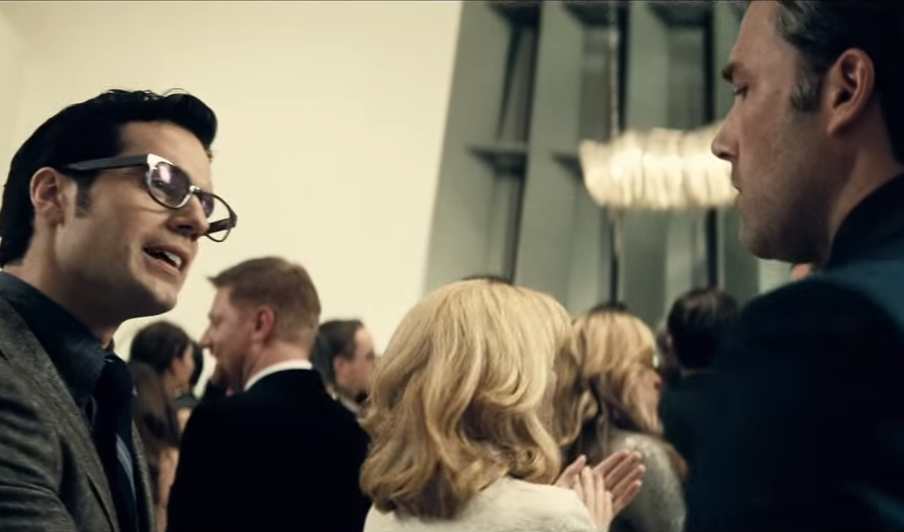WC '15 Contest 3 S2 - Detective Work
View as PDFWoburn Challenge 2015-16 Round 3 - Senior Division

While Superman was preparing in secrecy for the fight to come, feelings of fever, rage and powerlessness were festering within the dark knight of Gotham. He can do nothing but watch as the planet praise an alien capable of annihilating it. The peace of Gotham he fought so long to protect is now compromised by a godly figure that has unworthily gained the world's reverence.
To take care of this threat for good, the masked billionaire will have to elaborate a plan like no other he's ever concocted. In preparation, Batman plans on doing some heavy-duty detective work to figure out Superman's weaknesses. The logical place to start is by determining his secret identity. After compiling an abundance of data on Superman's movements and past battles, as well as newspaper articles written about him, he will need a program that can efficiently cross-reference them to fill in the missing pieces and hopefully uncover the man behind Superman. As the new intern of the batcave, your first task is to write a cryptanalysis program that can process the compiled data to help Batman figure out who Superman really is.
The data that Batman has compiled consists of
uppercase, alphabetical strings
, each of length
. A good detective knows that no data from the real
world is ever fully complete or accurate, so Batman has decided to
represent unknown information in the strings with wildcard letters
denoted by question marks. Specifically, each of these
strings will
only consist of uppercase letters from
A to Z, as well as
special wildcard characters (?). The instincts of the world's
greatest detective tell him that it will be possible to transform all of
these strings into the same string (any string of Batman's choice,
made up of
letters), and hopefully this will be the real name of
Superman. To accomplish this, some of the letters in the strings may be
replaced with other letters at a cost of
each. But for this method to
be effective in actually extracting useful data, the number of letters
changed must be as small as possible! The lower the total cost, the more
likely it is for the result to be accurate. Each wildcard character can
also be changed into any letter of Batman's choice, at no cost.
But measuring this cost is not definitive, so Batman would also like to
know the "error" of the process. In particular, this error is defined as
the number of different strings that Batman can choose, such that
all
strings can be transformed into
with this minimal cost.
Knowing this error is important, because the larger the total number of
possibilities, the less likely that
is the actual name of Superman.
Since this error value can actually get very large, Batman doesn't care
any more than the last
digits (if the error is in the thousands or
more, the data is unreliable anyway). So you are only required to
compute the error modulo
. For example, if the error is
, simply
output
. Fortunately, Batman is also a genius-level number theorist so
he has made you aware of the following two identities, which may prove
useful:
Will Batman be able to solve one of the greatest-kept secrets in the world to help him defeat the most dangerous being in the world? His fate rests in your hands.
Input Specification
The first line of input will contain two space-separated integers
and
.
The next lines will each contain a single string, where line
contains
, for
.
Output Specification
The output should be a single line consisting of two space-separated
integers. The first integer should be the cost, i.e. the minimum
possible number of letters which must be changed to allow all words
to be turned into the same word. The second integer should be the error,
i.e. the number of ways in which this can be accomplished (modulo
).
Sample Input 1
4 9
??ARKKANT
CL?RK?ENT
SUPERGIRL
???RK?UNTSample Output 1
11 64Explanation 1
All four strings can be turned into the word CLARKKENT with minimal
cost. The second string can be transformed to that with no extra cost,
since the wildcard characters line up. The last A is wrong in the
first string, so it will take a cost of to make it an
E. The third
string shares no matching letters whatsoever with CLARKKENT, and
therefore all letters of it should be swapped. Finally, the
U in
the last string is incorrect, and should be switched for an E at a
cost of . Similarly, there are
other words that may be reached by
making exactly
replacements.
Sample Input 2
1 3
???Sample Output 2
0 576Explanation 2
With only one string, any assignment of the wildcard characters to
letters will suffice. Each one can independently be turned into any of
the letters, so there are
possibilities. This set of
data is clearly not that helpful for Batman.
Comments